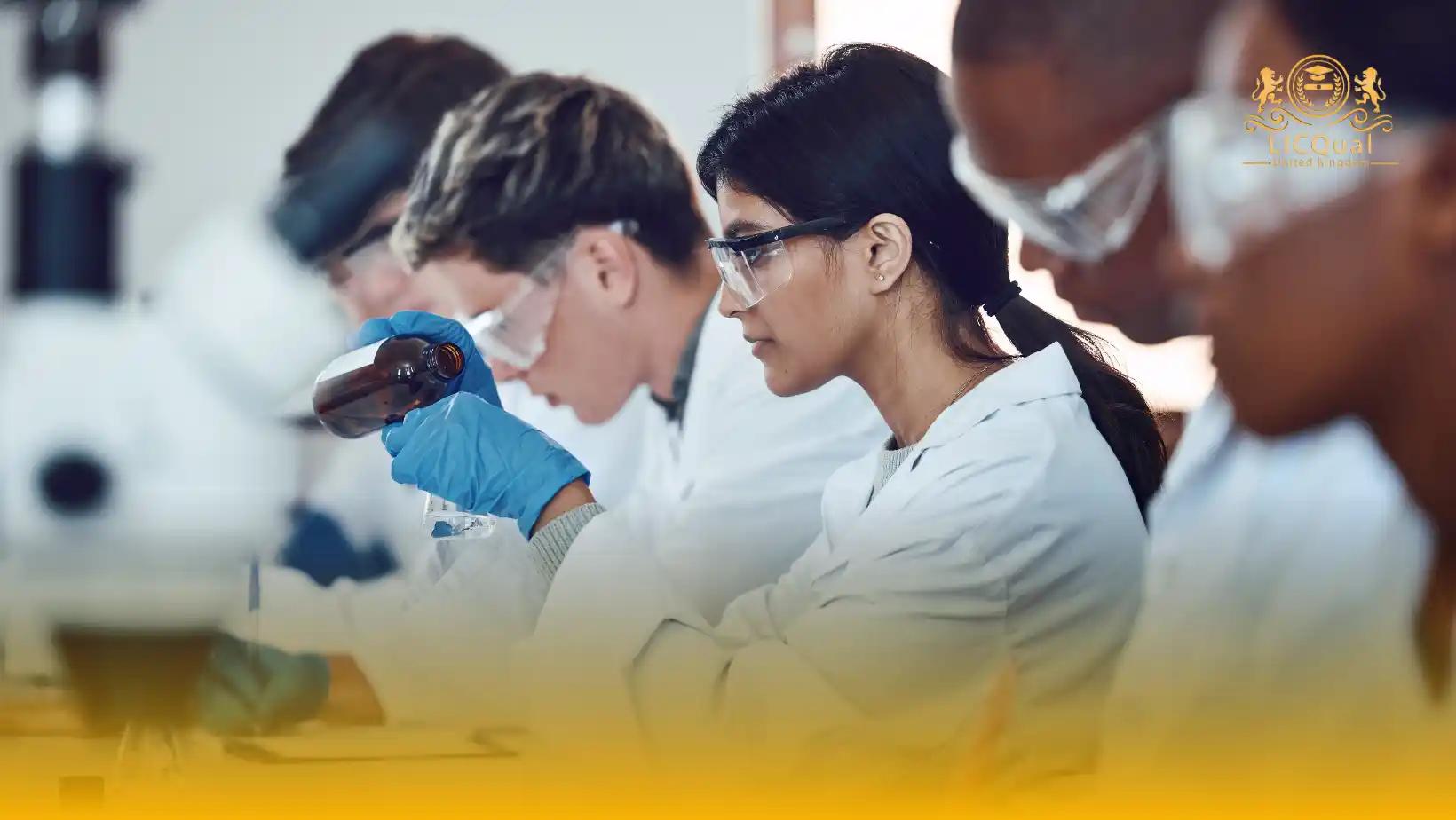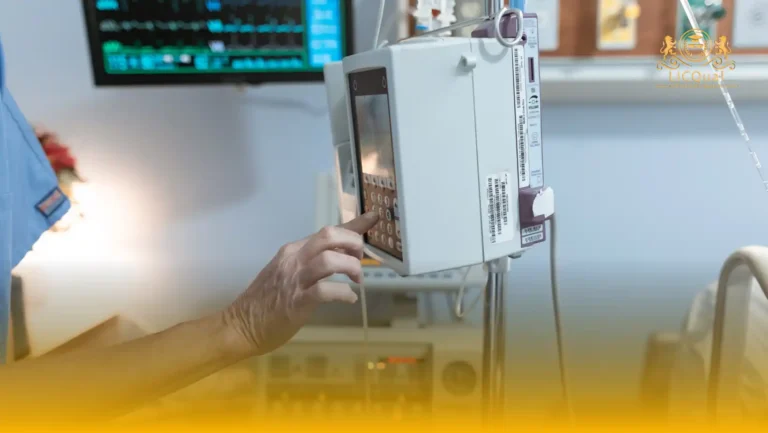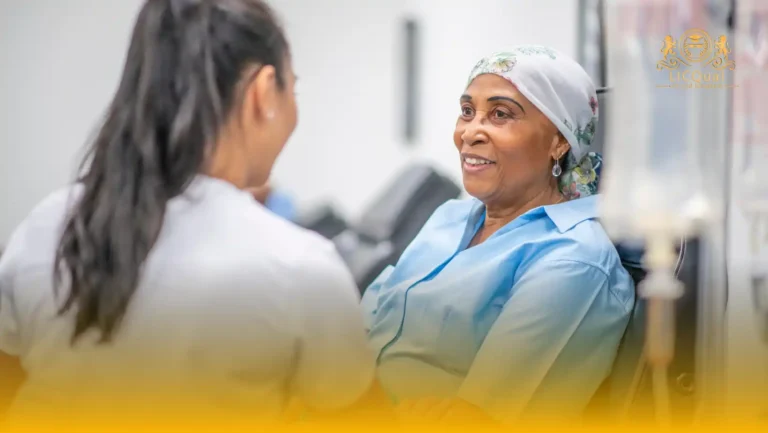The LICQual Level 3 Diploma in Forensic Medicine (Dip FM) is a specialist qualification designed for healthcare and legal professionals seeking to expand their expertise in the application of medical knowledge within legal and investigative contexts. This course is not intended for fresh candidates but is tailored to experienced learners who wish to enhance their career prospects, deepen their understanding of forensic practice, and strengthen their Continuing Professional Development (CPD).
Forensic medicine plays a vital role in bridging the gap between healthcare and the justice system. This programme provides learners with a comprehensive understanding of medico-legal investigations, forensic pathology, toxicology, injury analysis, and ethical considerations in forensic practice. Learners will also develop skills in preparing medical evidence, understanding cause of death, and contributing effectively to legal proceedings. By completing this diploma, professionals will be well-prepared to support justice and public safety through accurate medical evaluation and reporting.
The Dip FM aligns with international standards, ensuring that learners gain both theoretical knowledge and practical skills applicable across diverse professional settings. This qualification is especially valuable for those working in healthcare, law enforcement, legal practice, or public service roles that require expertise in forensic medicine.
Centres delivering the LICQual Level 3 Diploma in Forensic Medicine must ensure they have qualified and competent staff, as well as the necessary facilities, learning resources, and assessment tools to deliver high-quality training. This guarantees that learners receive a robust, engaging, and professionally rewarding educational experience.
The LICQual Level 3 Diploma in Forensic Medicine is therefore an ideal pathway for professionals dedicated to advancing their expertise and making a meaningful impact within the fields of healthcare, law, and justice.
Course Overview
Qualification Title
LICQual Level 3 Diploma in Forensic Medicine (Dip FM)
Total Units
6
Total Credits
60
GLH
240
Qualification #
LICQ2200890
Qualification Specification
To enroll in the LICQual Level 3 Diploma in Forensic Medicine (Dip FM), applicants must meet the following criteria:
|
Qualification# |
Unit Title |
Credits |
GLH |
|---|---|---|---|
|
LICQ2200890-1 |
Introduction to Forensic Medicine and Medico-Legal Principles |
10 |
40 |
|
LICQ2200890-2 |
Human Anatomy, Physiology, and Post-Mortem Changes |
10 |
40 |
|
LICQ2200890-3 |
Forensic Pathology and Determination of Cause of Death |
10 |
40 |
|
LICQ2200890-4 |
Forensic Toxicology and Substance Analysis |
10 |
40 |
|
LICQ2200890-5 |
Injury Interpretation, Violence, and Crime Scene Medical Evidence |
10 |
40 |
|
LICQ2200890-6 |
Ethics, Professional Practice, and CPD in Forensic Medicine |
10 |
40 |
By the end of this course, learners will be able to:
Unit 1: Introduction to Forensic Medicine and Medico-Legal Principles
- Explain the scope and role of forensic medicine within healthcare and legal systems.
- Describe key medico-legal principles and their application in practice.
- Analyse the responsibilities of forensic practitioners in clinical and legal contexts.
- Apply knowledge of professional and legal frameworks to real-world forensic scenarios.
Unit 2: Human Anatomy, Physiology, and Post-Mortem Changes
- Describe the structure and function of major human body systems relevant to forensic investigations.
- Explain physiological changes and post-mortem processes following death.
- Analyse the impact of anatomical and physiological factors on forensic assessments.
- Evaluate how post-mortem findings contribute to cause-of-death determinations.
Unit 3: Forensic Pathology and Determination of Cause of Death
- Identify and classify different types of pathological findings in forensic examinations.
- Explain methods used to determine cause and manner of death.
- Assess evidence to support medico-legal conclusions.
- Apply forensic pathology knowledge to support investigations and reporting.
Unit 4: Forensic Toxicology and Substance Analysis
- Describe common toxic substances and their effects on the human body.
- Explain laboratory techniques used to detect and analyse toxins and drugs.
- Interpret toxicology reports in the context of forensic investigations.
- Evaluate the relevance of toxicology findings to medico-legal cases.
Unit 5: Injury Interpretation, Violence, and Crime Scene Medical Evidence
- Identify and classify injuries resulting from trauma, violence, or accidents.
- Explain methods for documenting and analysing medical evidence from crime scenes.
- Assess the significance of injury patterns in determining cause and context.
- Apply forensic principles to support legal investigations and court proceedings.
Unit 6: Ethics, Professional Practice, and CPD in Forensic Medicine
- Demonstrate understanding of ethical, legal, and professional standards in forensic medicine.
- Apply principles of confidentiality, consent, and safeguarding in practice.
- Reflect on the importance of Continuing Professional Development (CPD) in maintaining competence.
- Develop strategies for ongoing professional growth in forensic medicine.
The LICQual Level 3 Diploma in Forensic Medicine (Dip FM) is designed for healthcare professionals, legal experts, and practitioners who want to specialize in medico-legal investigations and forensic practice. This accredited forensic medicine diploma is ideal for those seeking CPD accreditation, career advancement, and practical skills in forensic pathology, toxicology, injury analysis, and post-mortem examination. Whether you are already working in healthcare, law enforcement, or legal consultancy, this Level 3 qualification equips you with the expertise to apply medical knowledge in legal and investigative contexts.
1. Doctors and Medical Practitioners
- Strengthen expertise in medico-legal investigations and forensic pathology
- Gain advanced skills in injury analysis and cause-of-death determination
- Enhance qualifications with an accredited forensic medicine diploma
- Apply evidence-based practices in hospitals, courts, and forensic labs
- Earn CPD points to support ongoing professional development
2. Nurses and Allied Healthcare Professionals
- Build confidence in supporting forensic and medico-legal cases
- Learn strategies for handling toxicology and injury documentation
- Strengthen qualifications with a CPD accredited forensic medicine course
- Improve ability to assist doctors in forensic and clinical investigations
- Gain practical skills for both hospital and legal-medical settings
3. Medical and Healthcare Students
- Develop a strong foundation in forensic medicine and medico-legal practice
- Gain a competitive edge for future healthcare and research careers
- Access flexible online learning while continuing academic studies
- Learn practical approaches to forensic pathology and toxicology
- Earn a recognized Level 3 forensic medicine qualification early in your career
4. Legal Professionals and Law Enforcement Officers
- Strengthen expertise in interpreting medical evidence for legal cases
- Learn strategies for collaborating with forensic medical experts
- Build qualifications for roles in courts, police, and investigative agencies
- Gain skills in medico-legal documentation and expert testimony
- Improve decision-making in criminal and civil investigations
5. Public Health and Community Health Practitioners
- Understand the role of forensic medicine in public health systems
- Learn strategies for integrating medico-legal practices into health programs
- Contribute to national and global health and justice initiatives
- Build qualifications for roles in NGOs and government agencies
- Apply forensic medicine principles to population-level investigations
6. Researchers and Academic Scholars
- Enhance expertise in forensic medicine and medico-legal research
- Learn advanced methods in forensic pathology and toxicology studies
- Strengthen qualifications for academic and research careers
- Gain skills to contribute to medical-legal innovation and discovery
- Build a pathway toward higher-level specialization in forensic medicine
7. NGO and Humanitarian Workers
- Prepare for healthcare and medico-legal delivery in underserved regions
- Gain practical skills for managing forensic cases in crisis situations
- Strengthen qualifications for roles in international aid organizations
- Learn to implement forensic medicine practices in resource-limited settings
- Contribute to global justice and humanitarian resilience initiatives
Centres delivering the LICQual Level 3 Diploma in Forensic Medicine (Dip FM) must meet strict standards to ensure high-quality training, learner success, and alignment with international best practices. The key requirements include:
- Qualified and Competent Staff: Centres must employ experienced trainers, assessors, and subject matter experts with recognised qualifications and professional experience in forensic medicine, healthcare, or related fields.
- Appropriate Learning Facilities: Centres should provide well-equipped classrooms, laboratories, and simulation facilities to support both theoretical learning and practical forensic exercises.
- Access to Learning Resources: Learners must have up-to-date textbooks, digital learning platforms, case studies, and reference materials to support independent study and assessment preparation.
- Assessment and Quality Assurance: Centres are required to implement robust assessment methods, internal verification, and quality assurance systems to ensure fairness, consistency, and adherence to international standards.
- Learner Support Services: Centres should offer academic guidance, pastoral support, and professional development resources to enable learners to succeed.
- Commitment to CPD: Teaching and assessment staff must engage in Continuing Professional Development (CPD) to maintain high standards of delivery and keep up to date with current forensic practices.
- Health, Safety, and Safeguarding Compliance: All facilities must comply with health, safety, and safeguarding regulations to provide a secure and supportive learning environment.
By meeting these requirements, centres can ensure that learners of the LICQual Level 3 Diploma in Forensic Medicine gain a professional, comprehensive, and practical educational experience, equipping them to excel in medico-legal and forensic practice.
Assessment and Verification
All units within this qualification are subject to internal assessment by the approved centre and external verification by LICQual. The qualification follows a criterion-referenced assessment approach, ensuring that learners meet all specified learning outcomes.
To achieve a ‘Pass’ in any unit, learners must provide valid, sufficient, and authentic evidence demonstrating their attainment of all learning outcomes and compliance with the prescribed assessment criteria. The Assessor is responsible for evaluating the evidence and determining whether the learner has successfully met the required standards.
Assessors must maintain a clear and comprehensive audit trail, documenting the basis for their assessment decisions to ensure transparency, consistency, and compliance with quality assurance requirements.







